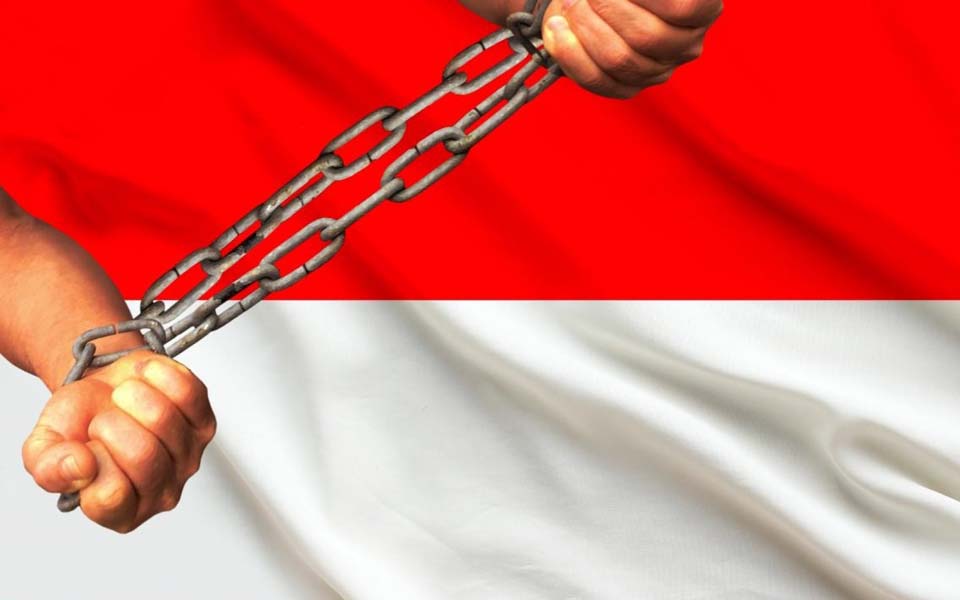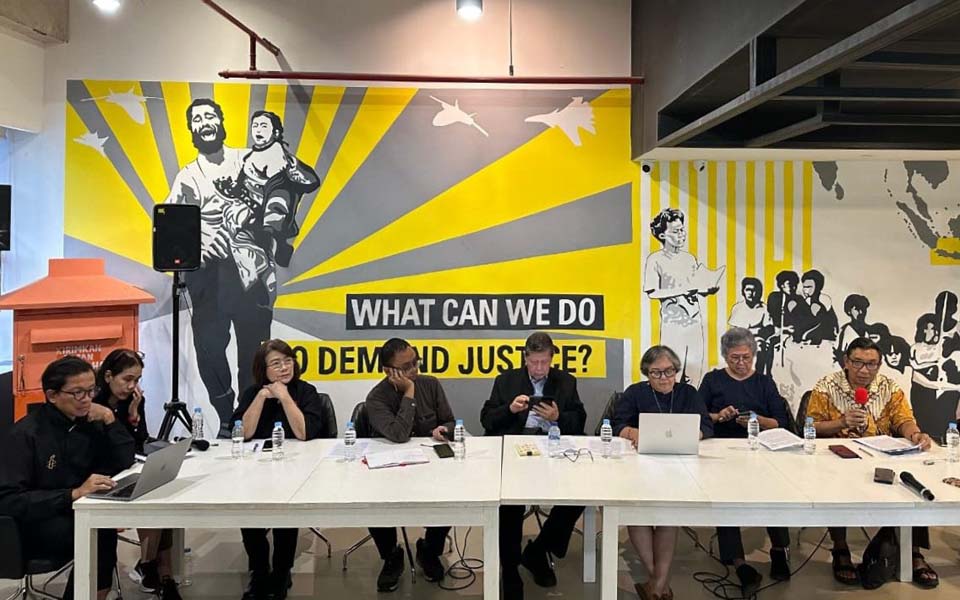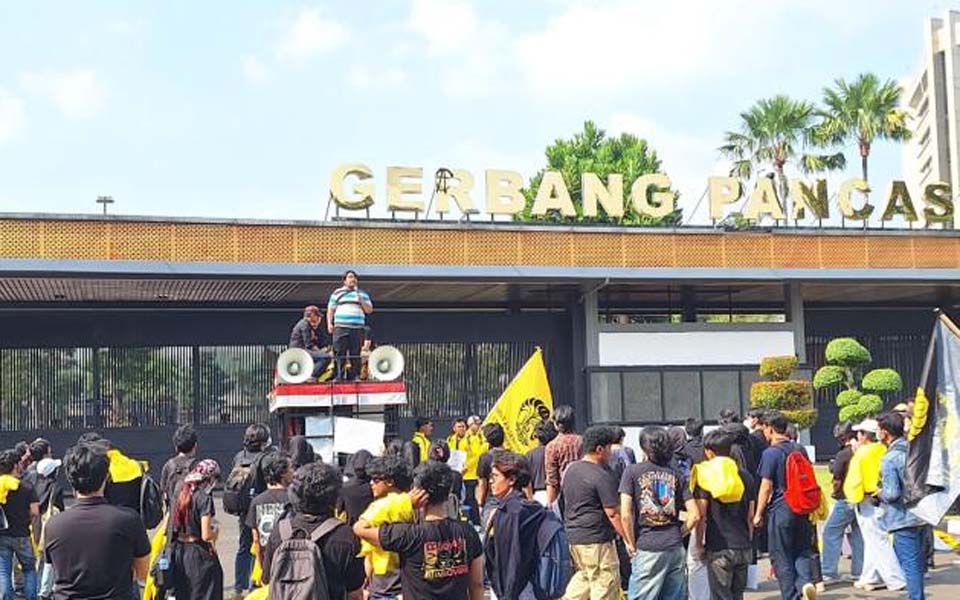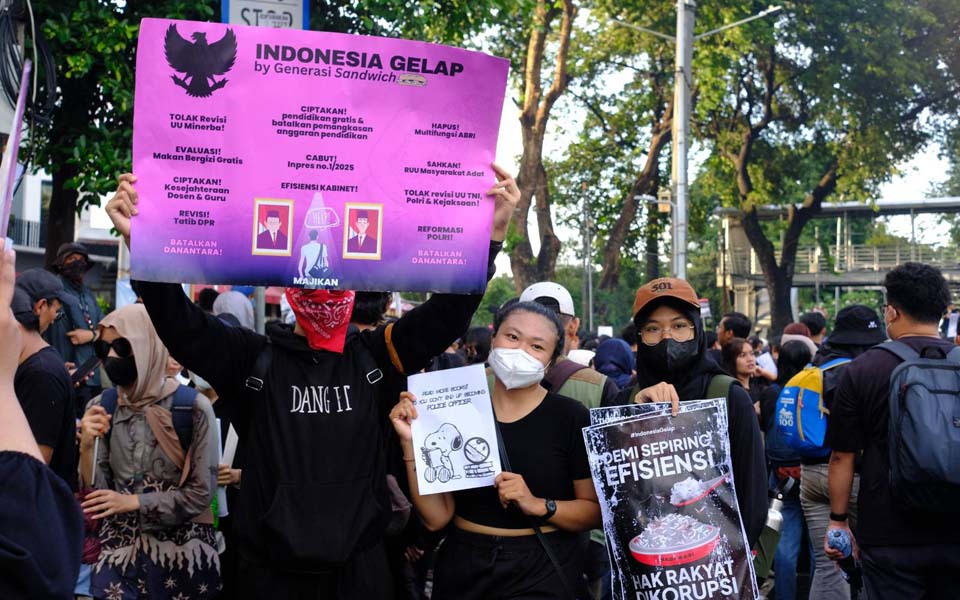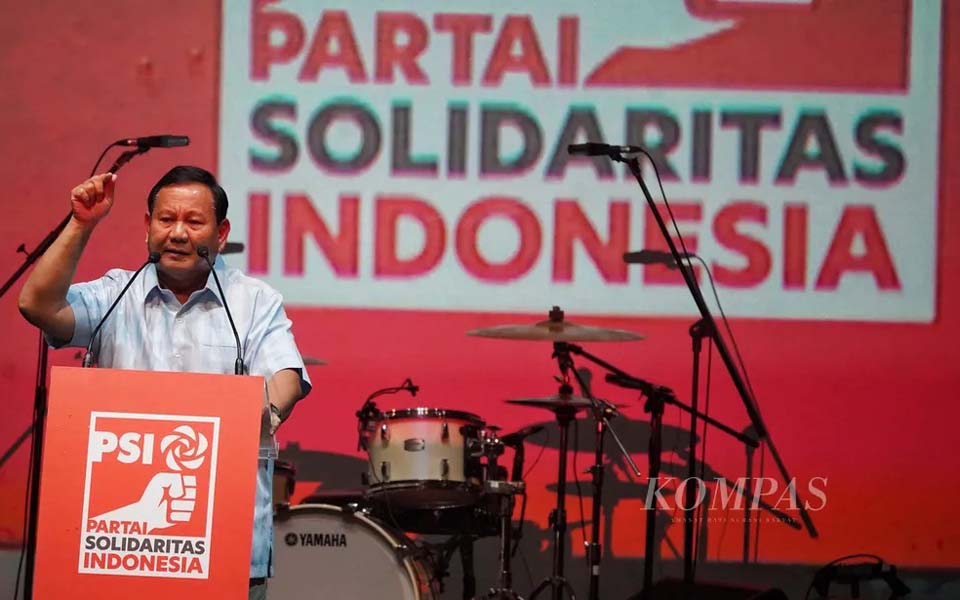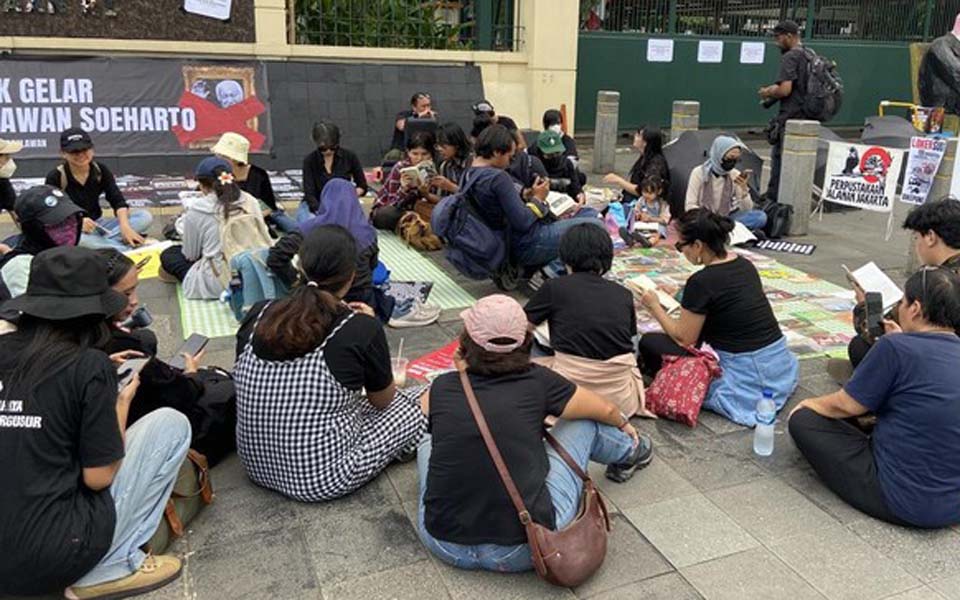Jakarta – Civil freedoms under the administration of President Joko “Jokowi” Widodo are seen as having declined. Based on the results of a Saiful Mujani Research Center (SMRC) survey between May and June 2019, 43 percent of respondents said they were afraid of expressing an opinion in public.
This percentage is a significant increase compared with 2014 (when Widodo was first elected) when it was only 24 percent. The SMRC survey also revealed that 38 percent of respondents felt afraid of being arbitrarily arrested by security forces.
Jakarta Legal Aid Foundation (LBH) Director Arif Maulana says that the government’s attitude, which has become increasingly repressive of late, indicates the poor state of civil freedoms during the Widodo era.
A string of cases shows that the current government is quite “allergic” to criticism and sees protest actions as harming the regime.
“Expressing an opinion in public should be a constitutional right which is guaranteed by law. This is a right, but now it’s as if it is viewed as a crime, criminal. Yet this should be protected and facilitated by the police. Now it's repressed instead”, Maulana told CNN Indonesia on Tuesday November 5.
The Indonesian Legal Aid Foundation (YLBHI) notes that the wave of demonstrations which took place in 2019 resulted in 6,128 victims, 51 of which died, and 324 that were still children. Many university and high-school students have been arrested.
Maulana said that instead of protecting protesters, the security forces create a climate of fear. “The aim is not law enforcement but to terrorise high-school students, university students, the public, so that they will be afraid of holding any more demonstrations. Such is the repressiveness so that in end the police have become a tool of those in power”, he said.
The repressive approach taken by the Widodo government, continued Maulana, was also shown by the ban on students taking part in demonstrations. Through tertiary education rectors, students were banned from joining demonstrations. They were even threatened with being dropped-out (expelled) if they went ahead and took part in the actions.
Maulana believes that this attitude is similar to the Normalisation of Campus Life and the Student Coordinating Bodies (NKK/BKK) which were notorious under the New Order (Orba) regime.
The NKK/BKK were polices applied by Indonesia’s second president Suharto between 1977 and 1978 that were designed to split the student movement, which at the time was quite massive. The aim was to restrict the political activities of students.
“Now campuses are being conditioned through rectors who are asked to prevent students from demonstrating. This situation is growing worse, it’s like a return to the New Order”, said Maulana.
Based on YLBHI data, between January and October 22 there were 78 cases of prohibitions on expressing opinion in public.
Maulana said that the majority of violations were perpetrated by the police from at the level of the sectoral police through to the district, regional (provincial) and the national police headquarters, with as many as 67 cases of violations recorded. Meanwhile there were seven cases of violations by TNI (Indonesian military) units.
According to the YLBHI’s findings, continued Maulana, there was a general pattern to the violations against freedom expression in public.
Referring to the YLBHI findings, in any given case there was more than one pattern of violation, one of which was blocking or restricting protest actions. Generally this was carried out through raids and searches.
Then there was the seizure of personnel equipment or the release of private data (doxing). Violations also occurred through illegally and forcibly dispersing protesters using excessive force such as tear-gas, rubber bullets and live rounds.
“We also noted acts of violence with a total of 68 incidents which were usually carried out through intimidation accompanied by discrimination, abuse, torture and the use of live rounds”, he explained.
The YLBHI also noted that pursuits and abductions which were done through pursuing, hunting down and abducting people after protest actions. In addition to this there was also alleged criminalisation through wrongful arrests, detention, naming people suspects and blocking legal aid.
The makar (treason, subversion, rebellion) articles in the Criminal Code (KHUP) along with the Electronic Transaction and Information Law (UU ITE) were also often used as a “weapon” to silence critics of the regime.
Not long ago a journalist and the founder of the WatchDoc production house, Dandhy Laksono, was arrested for allegedly violating the articles on hate speech under the ITE Law, although he was eventually released. Laksono is indeed known as a vocal critic of the government.
“Now people who criticise the government are subject to the makar articles, there’s also the UU ITE. This is very often used to repress people who hold a different opinion”, said Maulana.
These threats, said Maulana, also target media workers. According to Maulana, journalists are often victims of violence when covering actions or taking up certain issues which are critical of the regime. Yet working as a journalist is protected under the Press Law.
Maulana believes that these incidents clearly show Widodo’s anti-democratic attitude, which is no different that the situation under the Suharto’s New Order regime.
Widodo has forgotten the mandate of reformasi – the political reform process that began in 1998 – so civil freedom are forgotten and even repressed. Moreover the problem of human rights are now no longer a priority for Widodo.
In his speech after being inaugurated on October 20, the former mayor of Solo did not even touch on the issue of human rights.
“It can be said that Jokowi wants to revive the neo-Orba, revive the New Order. What’s we have now is an authoritarian government, and with every pasing day its position is increasingly anti-democratic”, he said.
Maulana warned that Widodo owes his position as president to the democratic process. The number one person in Indonesia was elected democratically through a general election. Yet the stance being shown by Widodo has been in fact one of resistance, particularly to criticism.
“Jokowi must return to the constitution, reformasi. If not, our country will retreat democratically, return to the dark days, where under the Orba life was cheap, the law was used as a tool of those in power, and civil freedoms repressed. Don’t allow us to return to that”, said Maulana. (psp)
[Translated by James Balowski. The original title of the article was “Jokowi, Neo Orba dan Awan Gelap Kebebasan Sipil”.]







